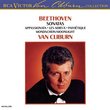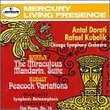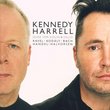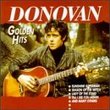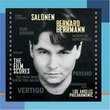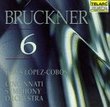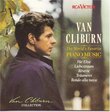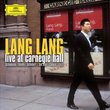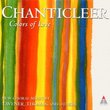| All Artists: Gabriel Faure, Maurice Durufle, Cecilia Bartoli, Bryn Terfel, Myung-Whun Chung, Coro e Orchestra dell'Accademia Nazionale di Santa Cecilia Title: Fauré · Duruflé - Requiem ~ in paradisum / Bartoli · Terfel · Chung Members Wishing: 0 Total Copies: 0 Label: Deutsche Grammophon Release Date: 5/11/1999 Genre: Classical Styles: Opera & Classical Vocal, Historical Periods, Early Music Number of Discs: 1 SwapaCD Credits: 1 UPC: 028945936529 |
Search - Gabriel Faure, Maurice Durufle, Cecilia Bartoli :: Fauré · Duruflé - Requiem ~ in paradisum / Bartoli · Terfel · Chung
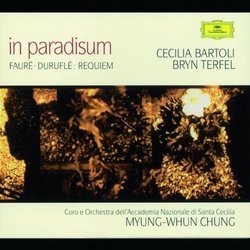 | Gabriel Faure, Maurice Durufle, Cecilia Bartoli Fauré · Duruflé - Requiem ~ in paradisum / Bartoli · Terfel · Chung Genre: Classical
Once described as a "lullaby of death," Gabriel Fauré's Requiem is a work of supreme composure that seems to illustrate the gentlest of goings into that good night. This recording bucks the current trend favoring the ... more » |
Larger Image |
CD DetailsSynopsis
Amazon.com Once described as a "lullaby of death," Gabriel Fauré's Requiem is a work of supreme composure that seems to illustrate the gentlest of goings into that good night. This recording bucks the current trend favoring the composer's original version for reduced chamber orchestra, offering the fully orchestrated edition from 1899. The result gives a solid, spacious context for Fauré's modal lyricism, his interplay of light and shadow, to unfold. Conductor Myun-Whung Chung at times even suggests a dark undertow of despair, as in the funereal plunge and tread of the Introit, yet he is also keenly sensitive to the agnostic composer's essentially sensuous textures (listen to the dark amber interweaving of inner string lines in the Offertorium), thereby escaping the potential sentimentality that sometimes pits Fauré's vision unfavorably against the robust fire and fury of Verdi's Requiem. In this regard, Chung's choice of soloists is ideal. Cecilia Bartoli's rendition of the Pie Jesu will stop you in your tracks (simply one of the most achingly beautiful examples of her artistry), while Bryn Terfel uses the rich resonance of his baritone to powerful effect. Maurice Duruflé's Fauré-inspired Requiem, offered as the coupling, is likewise given in its fully orchestrated version. The patient serenity of its culminating In Paradisum seems to offer a harmony of the spheres for our age of anxiety. --Thomas May Similarly Requested CDs
|
CD ReviewsChung finally lives up to his billing 11/08/1999 (4 out of 5 stars) "You can reasonably expect Bartoli and Terfel to be fine artists, especially if they are well-supervised. I cringed when I first saw this one in that I expected Chung to beat prissily away as he usually does, but the sneaking suspicion that he'd actually think a recording project through caused me to go for it.And I'm glad I did. Bartoli's presence inspires him and Terfel to come way up to her considerable international standard. As for the Santa Cecilia Orchestra...well...it would play well even for YOU...or sometimes even WITHOUT you. To go along with this, the Santa Cecilia Chorus outdoes itself in ardor, mimicry, and close attention to the text, absolutely one of the finest choirs in the world.The Faure has some darker corners than what we're used to and gives Chung an opportunity to think and produce an effect for once. His Durufle is on the same level, full of contrast without being jerked around, luminous and fulfilling. All told, this turns out to be Chung's best recorded effort and is an excellent accomplishment for him...although I suspect the superior standard of his Rome forces contributes greatly to this (when he gets back to Paris are we back to routine?) The sound is also lovely, a warm, silky presentation of what's obviously an outstanding venue for recording projects such as this.In going out the door, I'll express one caveat...these are French works and nothing is particularly Gallic about the performances...but in the divine scheme of things, this might be seen as going way beyond national idiom." High-Powered Faure. Bad Idea. Tom | Toronto,, Ontario, Canada | 06/15/2000 (1 out of 5 stars) "This is Faure with star power, and the result is painful, to my ears anyway. Faure is many things: subtle, elegant, graceful, melodic, and haunting, all about in equal measure. This recording is too seldom any of those things for very long. The major problem is the two big "show-stopper" numbers, the "Pie Jesu" for Bartoli and the "Libera me" for Terfel. Faure certainly didn't intend these lovely pieces as show-stoppers, but that is what we get here. Bartoli's solo is beautiful in a show-offy self conscious sort of way. She has a great voice certainly, but this music would be better suited to a more restrained performance. But one could learn to live with her interpretation, I suppose. The real problem is Terfel, who belts out "Libera me" as though he were leaning into a Puccini solo in full force. It is very hard to describe just how monumentally wrong-headed his approach is--the proverbial bull in a china shop. For those of you familiar with Faure, you may want to hear Terfel's performance once for its shock value, but this Requiem is most likely not going to appeal to you for very long, unless, of course, you are a fan of the Ethel Merman approach to this repertoire. For those of you unfamiliar with this work, there are literally dozens of more attractive recordings of this work. My favourite is the Montreal/Dutoit version that generously includes the lovely Pavanne as well as the Pelleas and Melisande suite." A revisit because more stars need to show Mark G McCue | Denver, CO United States | 04/27/2001 (4 out of 5 stars) "In revisiting this fine effort conducted by Chung, I just wanted to add that unlike what my fellow reviewer hears, Terfel gives me the notion of Jacques Jansen, a rich, vibrant, demonstrative French baritone of old who sang the Faure many times. His Arkel set the standard for Debussyan chanson, too, and in considering that, this Terfel performance seems well within the French tradition and not Puccinian verismo at all.After all the nasty things I've written about Chung, I'll stick to giving him his due here for outstanding work. The Santa Cecilia forces have historically rejected anyone resembling a hack, and in accepting Chung, they give him their considerable all here. Reassign four stars on a rehearing...as blessed relief for all the precious British little boychoir performances we're saddled with in these powerful works."
|

 Track Listings (16) - Disc #1
Track Listings (16) - Disc #1